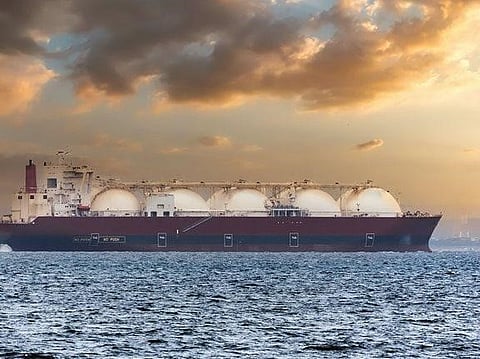Egypt’s LNG buying spree reflects a region undergoing change
Geneva's BGN International has been contracted to support Egypt's growing energy needs

Before the Middle East erupted recently, and energy markets reflected equal unease, Egypt quietly inked agreements to import up to 160 cargoes of liquefied natural gas (LNG) through 2026. The massive deal, worth over $8 billion, involves major gobal energy firms including Aramaco, Shell, Vitol, Trafigura, BGN, SOCAR, and PetroChina. On paper, it’s just a commercial transaction, albeit a very large one. But behind the scenes, the move is a signal of just how far the region’s most populous country has veered from its once touted energy self-sufficiency. In 2018, Cairo was exporting gas. Today, it's a net importer and amid the current regional climate, that is a precarious position to be in.
At the same time, the UAE is moving in the opposite direction: scaling up its role as a global LNG provider. ADNOC’s recent $18.7 billion bid for Australian gas producer Santos is one such step. Abu Dhabi is positioning itself as a long-term, reliable supplier in an increasingly fragmented global gas market. While Egypt has reverted to importing gas, the UAE is building out production, transportation and storage infrastructure and proving to the region, and world that its natural gas operations are a force to be reckoned with.
Meanwhile, Egypt’s pivot to LNG imports comes amid a perfect storm: declining domestic production from aging gas fields, surging summer demand, and economic issues marked by inflation and dwindling dollar and other foreign reserves. As strategic as these new massive deals may be to stabilizing domestic markets, they may also highlight EMEA's energy vulnerabilities.
Egypt has long positioned itself as a regional gas hub and a cornerstone of Eastern Mediterranean energy integration. It operates some of the continent’s only functioning LNG export terminals, which have been critical for shipping Egyptian gas to Europe amid the fallout from the Ukraine War. If Egypt is now buying LNG instead of selling it, the knock-on effects will ripple far beyond its borders - especially as Gulf producers like the UAE quietly step into the vacuum.
The contradiction is sharp. On the global stage, Egypt continues to speak the language of energy transition — hosting COP27 in Sharm el-Sheikh, showcasing green hydrogen MOUs, transition fuels, and promoting renewables as the future. But at home, the narrative is slightly different. Underinvestment in upstream gas, subsidized domestic prices that discourage exploration, and a tangled web of power sector debts have pushed the country back into dependence on imported fuels.
Yet that imported gas likely won't be as cheap as those the country's once self-produced. LNG prices may have eased from their 2022 highs, but competition remains fierce. Europe, still diversifying from Russian gas, has taken up much of the flexible spot supply leaving Egypt paying a premium — precious dollars in exchange for a country that once enjoyed energy security. The irony is that many of the ships delivering this gas will pass through the Suez Canal, carrying a resource Egypt once exported.
Enter the role of nimble traders who have come to Cairo's rescue. Take BGN International, for example, a Geneva-based trader with a strong Egyptian and regional presence — the firm supplies gas to Egypt while operating energy assets across the country. It’s one of the half-dozen suppliers that Cairo has contracted to support its energy needs. While national utilities grapple with debt restructurings and subsidy reforms, BGN has quietly built an energy logistics operation that moves clean fuel, like gas, efficiently. The trader has a market advantage allowing it to mobilize cargoes across the Mediterranean, West Africa, and Gulf making it an increasingly valuable actor in a market where speed and optionality are more important than ever.
Interestingly, BGN formed a joint venture with UAE's Al Seer Marine earlier this year to acquire mid-sized LPG carriers — vessels sized for ports that can’t handle supertankers. This also opens avenues for lower-carbon energy delivery in markets the supermajors often overlook.
Egypt’s LNG re-entry also underscores a hard truth: the energy transition needs clever strategic planning and sharp execution to work. Fossil fuels aren’t going away tomorrow and the need for clean natural gas, long touted as a transition fuel, is all the more clear. Gas burns reliably and considerably cleaner than other fossil fuels, making it essential for base-load power during heatwaves and for keeping factories running when renewables falter. Egypt’s new gas deal is not necessarily a failure of midterm planning, rather it’s a reflection of energy realism.
This is the largest gas deal in the country's history. A reflection of both Cairo's clean energy ambitions, its booming energy demands, and a growing trend of developing nations rejecting coal and other more polluting energy sources. Still, realism doesn’t excuse stagnation. Egypt must also face the ever-present and uncomfortable question. Why, despite repeated power crises, does the country remain so vulnerable to summer spikes? Perhaps this deal, and its list of renowned suppliers, will finally close the gap.
This is a clever procurement strategy that leverages traders, shippers and producers to diversify supply routes for Egypt's most critical fuel. It is also a firm nod to private sector players who stabilize supply in the near term while governments regroup for the longer energy shift.
Egypt’s LNG buying spree may help it survive the summer. But unless structural reforms follow, the same crisis will return - hotter, costlier, and more politically fraught. For now, the tankers are on their way. But more gas deals and private sector leverage will be critical, as will partnerships with Gulf energy giants like ADNOC, who are increasingly calling the shots in the new Middle Eastern energy order.



